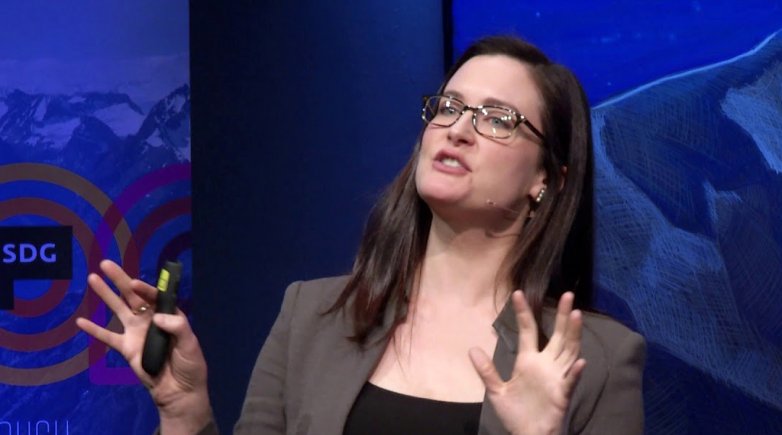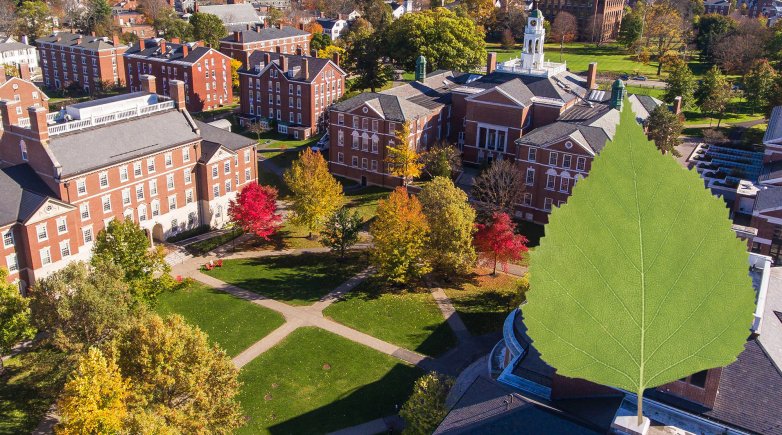Green app fills gap in environmental literacy
Seniors' independent study project features four-pronged approach for educating about climate change.
Kilin Tang '21 (left) and Joseph Chen '21 spent spring term developing LearnGreen, an app that promotes environmental literacy in young people.
Kilin Tang ’21 and Joseph Chen ’21 are convinced their generation cares about the planet. It just can’t find straight information for how to save it.
The Exeter seniors aim to fill that void that with their app LearnGreen. Their lofty goal is to equip the “next generation of American leaders with the tools to solve the impending climate crisis.”
Tang and Chen said the mainstream media’s lack of interest in covering the issue and what they say is a misinformation campaign by “malicious actors” such as fossil fuel companies leave kids uninformed about what is “the biggest threat facing our planet today.”
“When you look on the front page of the New York Times, for example, it's not there,” Tang said. “The average student in a public school in America spends one hour a year learning about climate change.” And what they learn, the pair says, is often unreliable and inaccurate information.
LearnGreen, the duo’s senior independent study for the spring term, takes a four-pronged approach toward plugging the gap in environmental literacy: Aggregating news on climate change; offering relevant curriculum; rewarding the user the more they interact with the curriculum; and connecting the user with local causes to make an impact.
The education and rewards prongs are the heart of LearnGreen. “We developed a specific curriculum — environmental racism, climate change, overfishing, the Green New Deal — things that are very explanatory in nature, so people can form a comprehensive understanding of the environment,” Tang said.
“And then, we tie that with the rewards section, so, when you complete a curriculum, you complete a quick quiz. And when you finish that quiz, you basically earn points, or ‘acorns,’ that when you accumulate them, you can use them to do things environmentally helpful. So, you can purchase an eco-friendly T-shirt, you can plant a tree, and the money goes to environmental non-profits.”
Both boys say their fellow Exonians are socially minded, politically conscious people. “They know what's going on in the world,” said Tang. “But even for myself, I read the news every single day, and I rarely see any environmental news, specifically. It's always about the current political climate, and while the issues in those areas are also very important, obviously, we want to make sure that the environment is just as represented, because climate change is going to kill half a million people each year by 2050, and it's going to displace another billion people by 2050.”
Chen said the appetite for LearnGreen is there.
“I did research on environmental misinformation and disinformation and actually apathy is not a big issue, at least among young people,” he said. “The problem is a lack of resources to affect immediate change and a lot of propaganda” that’s spreading the wrong message.


